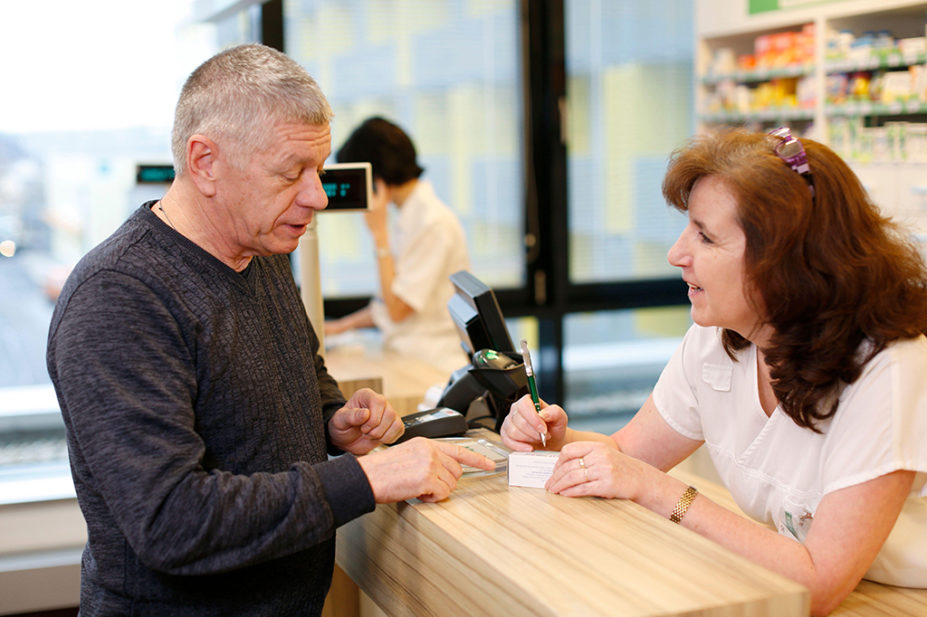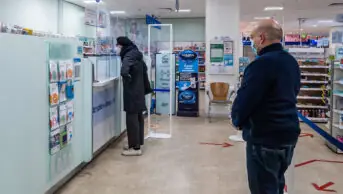
mauritius images GmbH / Alamy Stock Photo
Just under 100 community pharmacies in Humber and North Yorkshire are piloting a ‘walk-in’ minor ailment consultation service, saving “over 1,700” GP appointments in 11 weeks, according to the local pharmaceutical committee (LPC).
The ‘Walk-in consultation service’ (WiCS), which was commissioned on 1 September 2022, pays pharmacists in Humber and North Yorkshire £14 per patient for offering consultations similar to those offered under the community pharmacist consultation service (CPCS), but for patients who self-refer to their local pharmacy.
The current CPCS model enables patient referrals from NHS 111, NHS 111 online and general practices, with referrals from urgent and emergency care settings rolling out from March 2023.
However, the Pharmaceutical Services Negotiating Committee (PSNC) has long called for consultations with walk-in patients to be fully funded through the CPCS as well, with an audit of pharmacist consultations, conducted by the PSNC over seven days in January 2022, showing that 80% of patients seeking advice from their community pharmacy had self-referred.
According to the service specification, a consultation through the WiCS “will follow the format of the national CPCS, including advice and purchased over the counter treatment or a treatment supplied under the [minor ailment scheme], as appropriate and if commissioned”.
“Pharmacists are trained to recognise ‘red flag’ symptoms suggestive of more serious illness and after initial triage, where symptoms do suggest something more serious, the pharmacist will help the patient to arrange an urgent GP appointment using the practice’s dedicated professional number or escalate to an urgent care setting such as a minor injuries unit or emergency department, if needed,” it adds.
Paul McGorry, chief executive of Humber LPC, told The Pharmaceutical Journal that WiCS is being piloted in Humber LPC and North Yorkshire LPC “based on the sterling work done in Cornwall and is funded by our supportive local NHSE [NHS England] team who ‘purchased’ 6,000 WiCS [consultations] between the LPCs”.
“We are delighted to have this local support from NHS England and feel it further demonstrates the need for a national extension to the service,” he said.
The WiCS first launched in Cornwall in December 2021, with the aim of making an additional 10,000 pharmacist consultations available to patients locally.
McGorry said that the pilot has been running in the Humber and North Yorkshire for 11 weeks in 91 community pharmacies, which have “performed 3,089 WiCS interventions”, with 85% of patients visiting Humber-based pharmacies “treated by the pharmacy [and] the remainder signposted/escalated to others”.
“It’s too early to perform in-depth analysis of the data we have, which will be done, as will bids for extension of the service,” he said, but added that 60% of patients using the service would have otherwise visited their GP, potentially saving “over 1,700 [integrated care service-]level appointments … from that 60%”.
McGorry also noted that the proportion of patients treated within the pharmacy is lower for those based in North Yorkshire LPC “and escalation/signpost rate higher, which we believe could be linked to their lack of a minor ailments service and therefore fewer tools/options available to the pharmacy”.
In January 2023, health secretary Steve Barclay said the government was planning to work “with community pharmacists to tackle barriers to offering more services” in England, alluding to plans for a national minor ailment service similar to the NHS ‘Pharmacy First’ service that runs in Scotland.
In November 2022, the PSNC said that it was in renewed discussions with the Department of Health and Social Care about setting up the service, having previously presented a business case for it during negotiations for the final two years of the ‘Community pharmacy contractual framework’.
However, the service ultimately did not feature in the agreement that was announced.
You may also be interested in

‘Record number’ of prescriptions dispensed in England in 2024/2025 despite reduction in number of pharmacies

Community pharmacy independent prescribing consultations triple in two years
